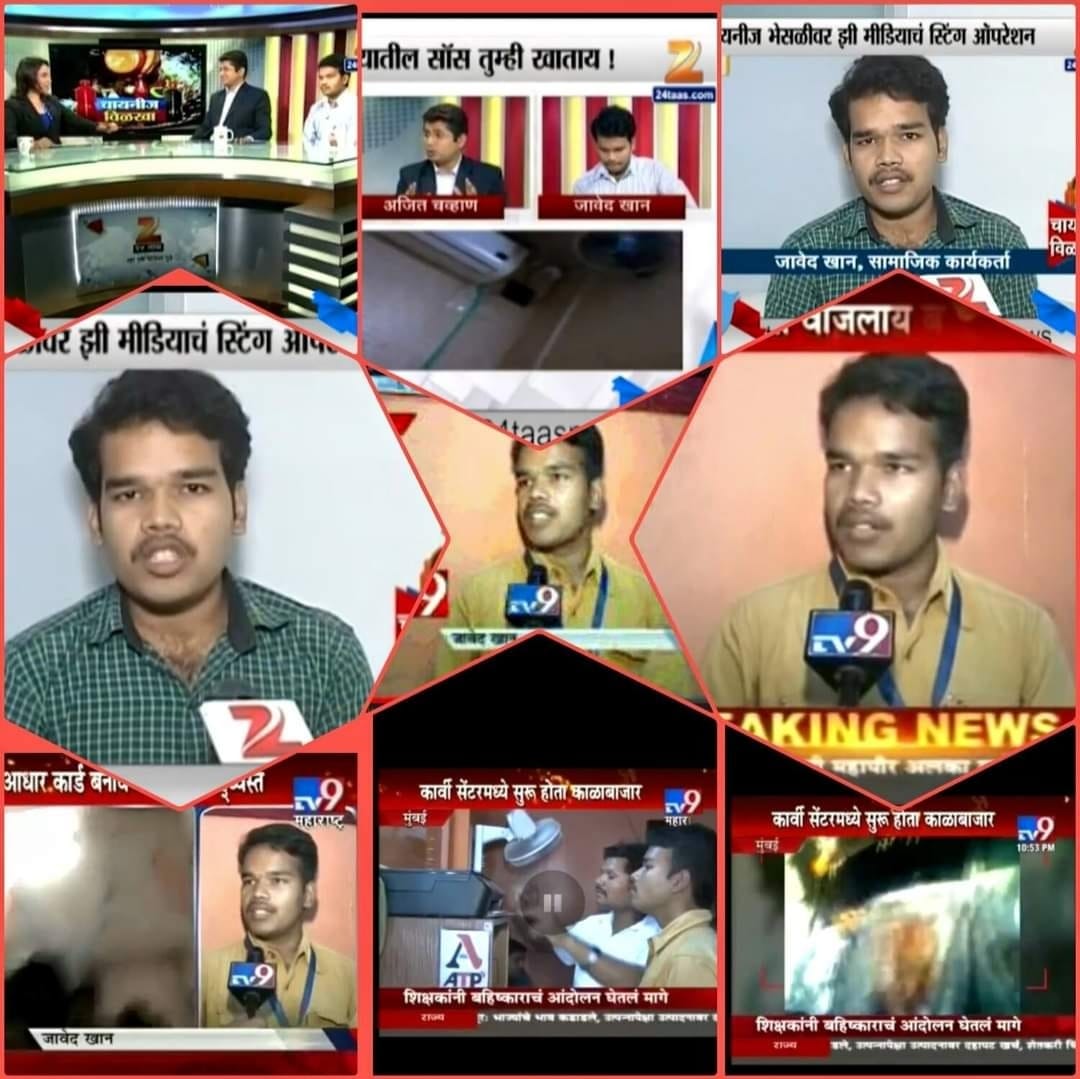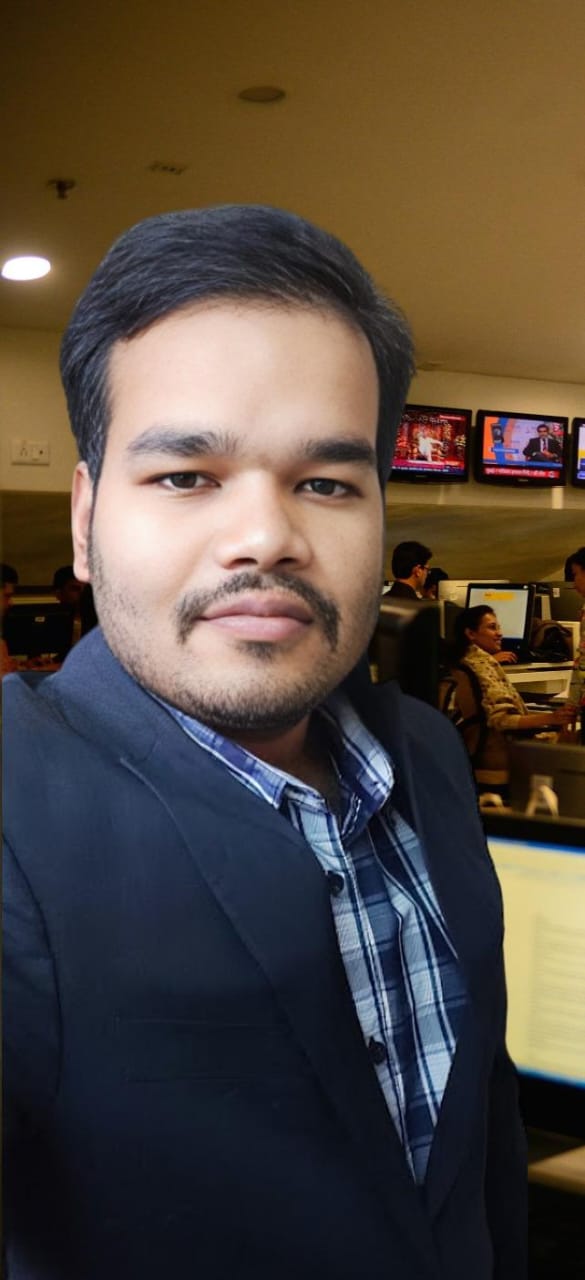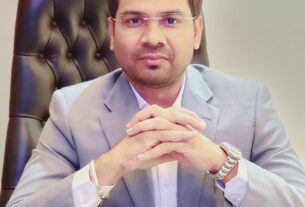In the ever-changing landscape of Indian journalism, certain individuals rise beyond the routine responsibilities of reporting to become powerful voices for justice, truth, and accountability. One such distinguished name is Javed Khurshid Khan, a Mumbai-based journalist whose dedication to ethical journalism has earned him a strong reputation in both print and electronic media.
Armed with a Bachelor of Mass Media (BMM) degree and an unwavering passion for storytelling, Khan has spent years shaping narratives that matter. His role extends far beyond the newsroom—he is also the Founder and National President of the Crime and Corruption Free India Foundation, a national initiative focused on promoting transparency and fighting corruption at every level of governance.
In this detailed conversation, Javed shares insights into his journey, challenges, inspirations, and his vision for the future of journalism in India.
Early Passion and the Journey Into Journalism
When asked to introduce himself, Khan speaks with humility and purpose. Growing up in Mumbai, he was always fascinated by the power of information and the responsibility that comes with it.
“Storytelling always felt like a calling,” he says. “The idea that a well-reported story can shape opinions, expose wrongdoing, or bring comfort to someone inspired me deeply.”
This early fascination matured into a full-fledged profession. Khan began working across media formats, gaining hands-on experience in the field while continuously honing his ability to communicate with clarity, fairness, and empathy.
The Motivation Behind Choosing This Career
For Javed, journalism is much more than a job—it is a mission.
He explains that the media’s ability to highlight hidden realities and give voice to the unheard is what pulled him toward the profession. “Journalism offered me the perfect blend of writing, investigation, and public service,” he says.
This motivation is also reflected in his leadership role within the Crime and Corruption Free India Foundation, which works at the grassroots level to empower citizens and promote ethical governance.
A Memorable Investigation That Strengthened His Resolve
Among his many reporting experiences, one incident stands out vividly—a corruption scandal involving local authorities. The investigation uncovered financial irregularities and misuse of power, generating widespread attention and eventually triggering government action.
Khan recalls, “That case reaffirmed why investigative journalism is essential. It reminded me that truth-telling, even when uncomfortable, is crucial for building a just society.”
Staying Updated in a Fast-Advancing Media World
In a world where information spreads rapidly, Javed believes that journalists must be lifelong learners. He stays informed by following credible news outlets, industry platforms, and expert analyses.
“Journalism evolves every day. To stay relevant, you have to stay curious, keep reading, and keep questioning,” he notes.
Challenges of Modern-Day Journalism
Reflecting on the current media environment, Khan highlights misinformation and disinformation as some of the biggest threats.
“Social media has given everyone a voice, which is good, but it has also magnified fake news. Maintaining credibility and accuracy is now more important—and more difficult—than ever.”
He believes that the true strength of journalism lies in its ability to remain objective amidst noise, pressure, and biases.

Balancing Journalism With Advocacy
Javed’s involvement in activism often overlaps with his role as a reporter. While both serve public welfare, he is careful about maintaining journalistic neutrality.
“Time management and discipline help me strike the balance. Journalism requires objectivity, while advocacy demands passion. I try to keep both aligned without compromising ethics.”
Advice to Aspiring Journalists
Javed emphasizes three traits—integrity, curiosity, and empathy. For him, a journalist must not only chase facts but also understand the people behind those facts.
“Ask questions fearlessly, learn continuously, and always value the trust people place in your work.”
Handling Criticism and Upholding Objectivity
Criticism, he believes, is part of the profession. Whether it comes from readers or from the individuals involved in his stories, he treats it as an opportunity to reflect and improve.
“Constructive feedback helps refine your work. But you must always stand by verified facts and ethical reporting.”
The Impact and Purpose of Journalism
At the heart of Javed’s professional philosophy is a deep commitment to society. He sees journalism as the backbone of democracy—an institution that holds power accountable and keeps citizens informed.
Some of the most rewarding moments in his career, he says, are when his stories bring real change. Whether it is policy improvements or justice for victims, those outcomes strengthen his belief in the power of the press.
Approaching Sensitive Stories With Care
Covering emotional or controversial stories requires patience, empathy, and responsibility. From conflict zones to human rights issues, Khan ensures he represents all sides fairly and respectfully.
“The goal is to amplify voices, not exploit them. Ethical storytelling is extremely important.”
Navigating the Digital Age of Journalism
Khan sees the future of journalism as dynamic and full of possibilities. Technology has opened doors to interactive storytelling, real-time reporting, and global communication.
However, he cautions that new tools must never overshadow core journalistic values.
“Adapt, innovate, but never compromise on truth.”
The Role of Social Media
Social media, according to him, is a double-edged sword. It boosts reach and accessibility but also fuels misinformation. Journalists must therefore be diligent, transparent, and responsible while using digital platforms.
His Vision for the Future
Looking forward, Javed hopes to continue playing a meaningful role—both in journalism and through his foundation.
“I want to keep advocating for press freedom, ethical reporting, and a more transparent India. Journalism has a big role in shaping a better future, and I want to contribute to that evolution.”



